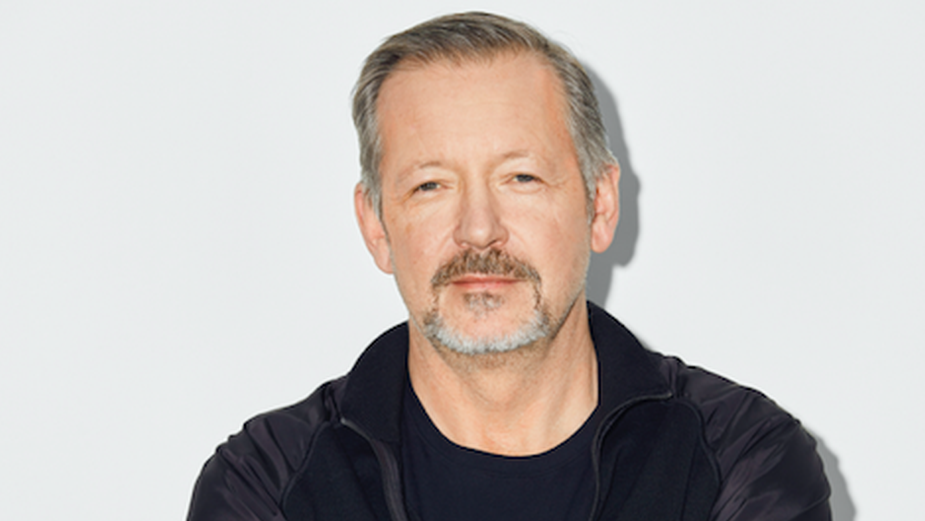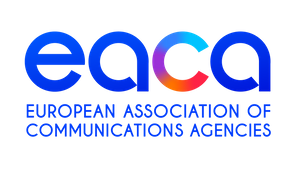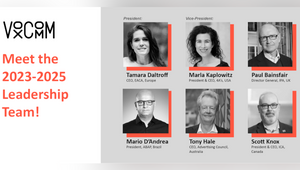
Facing this Crisis Together “As if Borders Don’t Exist”

There’s a series of jokes from the iconic 1980 movie ‘Airplane!’ in which Lloyd Bridges riffs on the theme: “I guess I picked the wrong week to give up smoking!” Paul O’Donnell invoked this pop culture reference when he was elected as the new president of the European Association of Communications Agencies. “This is possibly not the not the ideal week to start as the new president of a trade organisation,” he joked.
Amid a global pandemic set to disrupt practically every business in the world, the seas aren’t exactly calm as he steps aboard the deck of the EACA. But Paul, who’s also chief executive of Ogilvy EMEA, knows that organisations that straddle borders are more relevant than ever during times like this. LBB’s Alex Reeves joined him on a Zoom call to find out where he’s coming from and how he wants to steer the EACA through this storm.
LBB> Firstly, how are you doing? And how are you responding to the situation?
Paul> I’ve been OK. Like everyone, first of all there’s the shock of transformation and wondering whether any kind of business can operate in this environment. Particularly as a business where the sharp end of what we produce is content. And the quality of that content is the distinguishing factor. So you can talk over video, you can do a lot that way, but can you actually produce stuff?
With our many partners and with the forbearance of our clients we’ve been very surprised at the quality of output we’ve been able to generate in general. I don’t say that as an Ogivly boast. There’s obviously an appalling array of me-too ads at the moment with people like you and me clapping each other and and saying how kind we are, but in general there’s still some really good content that’s been produced globally by the industry, which shows how adaptable and flexible we can be. If everyone leans in it’s surprising what you can do.
LBB> Over the years, what’s your involvement with the EACA been before becoming president?
Paul> My involvement with the EACA has been quite long standing but not that deep. Ogivly were one of the original founder shareholders of the EACA back in the mists of time. We’ve been a contributor to it. We’ve been big supporters of the European project in terms of our network being one of the strongest and most broadly distributed across the region. And we’ve always been great supporters of industry cooperation and collaboration. We’ve seen the benefits of that in an industry that, at its worst, is very much a cottage industry and was once full of somewhat petty rivalries, even at the very top of holding companies as well, and that translated down to a market basis.
My engagement with a number of different industry bodies over the years has persuaded me that on a practical level that’s not really the case [anymore]. I think that as the world has become more globalised and regionalised, people have acknowledged the need to work together more, in the interests of our business, our people and our clients who we’re here to serve. The EACA seems to me to be in a good position to influence all of those things.
My own involvement has been signing off the books as one of the shareholders and chatting a couple of times a year to the director generals, of which there have been two in my time. And also very much supporting the Euro Effies and the creation of that. Other than the fact that Cannes exists creatively, as a global framework which is not really so European dominated anymore, there was no effectiveness platform across the region and there was no real way of looking at work that was working in more than one market. I think that given our business and some of our competitors’ business, that was a worthy thing to look at. It was a high bar to try and be effective across multiple markets and I think it’s something we should celebrate on a European basis.
It took a bit of time to get the momentum behind the Euro Effies really moving, but as Ogilvy One we were agency of the year in 2018, which was great. We’ve usually been there or thereabouts. And I’ve seen the quality, the number of agencies participating and the impact that has with clients really building. That’s been my primary involvement and I’ve been delighted to see it improving.
LBB> Over the years, what value have you felt the EACA brought to you and your agency?
Paul> The Euro Effies provides a useful forum to demonstrate what I think we’re particularly good at, and what a number of other agencies are good at, in a regional capability in addition to trying to be strong in the big markets in the region. So we welcome that forum. And also the professionalism that the Effies bring to effectiveness in general.
The other thing I’ve been very aware of as the CEO of one of the agency networks is all of the work that the EACA does with the European Commission. The UK being the UK and having, as we’re probably witnessing during the current crisis, a sense of somewhat British exceptionalism when it comes to achieving things, and because of the size of the industry in the UK, I don’t think we’ve paid enough attention to just how important the EU as a lawmaking body is. It’s not so much that they’re a lawmaking body but moreover, it is really the only global regulatory body that exists. If you look at GDPR or something like that, the US is broadly having to follow the outline that’s been set up by the EU because no one did it in the US. China is obviously a very different environment. But if you look at that as a sort of tripartite way in which the world’s run right now, whether from a UK perspective we’re in or out of the EU, we will to a large extent be governed by the direction of thought and process that the EU brings.
And it’s really the only organisation that’s giving proper consideration, in my view, to many of the issues around privacy, digital taxation, these other issues. As an advertising person trying to be very creative you want to put your head under a pillow and escape from that. But the reality is that that affects our clients’ business. It affects our business. And it affects our people.
So from quite early on I’ve been very interested in reading the updates that we get from the EACA and trying to distribute those to the people that run our businesses on a regional basis. It tends to be the EU thinking that’s the framework people start from when they’re addressing some of these issues. And if you can comply with EU regulation you can probably operate almost anywhere around the world (possibly with the exception of China).
There's also the influencer role that the EACA is very effective on, in terms of understanding a new European Commission. We have a new one now, which will run until 2024. And attempting to engage with them on the key issues of the day, bringing an industry perspective to those. All government organisations, whether they’re pan-national or just individual governments, tend to be in favour of legislating. That’s what they do. Our job is to say where legislation’s helpful for the industry and for consumers. That’s fantastic. However, probably taking the path of least resistance and allowing a free market to operate should be our broad starting point - as long as we ensure the right protections are in place, and that consumers remain positive about their experiences so they engage with media and advertisements. And that we ensure there isn’t misinformation of the type we hear a lot about today.
That’s a very technical aspect of what the EACA do and I’m certainly not the person to be quizzed on that right now. But I certainly believe that there’s a value to it. And I believe that value will continue for UK-based agencies.
LBB> You’ve succeeded your WPP colleague Dominic Grainger as president, meaning the presidency remains with someone based in London. What do you think about that at this time in history, for a European body?
Paul> Yes. When it was suggested that I might like to stand for election for this position, I thought we’ve just had a British guy, albeit a guy with EMEA responsibilities like myself, in this role. Post Brexit I’m surprised that some of the national associations aren’t giving some pushback on that and asking why we didn’t go for someone from ‘core Europe’ as we go forward.
I didn’t get into the details of the election process but apparently I did win. It wasn’t fixed! The view generally was that the UK does have a somewhat disproportionate influence on the European advertising business in terms of scale.
It was pretty clear from my engagement with the referendum and what I’ve said publicly since then that I was very firmly in the camp of keeping Europe together. I’m not here today to refight the referendum result, but it does seem to me that one of the benefits that I’ve experienced in recent years is the openness and ability to operate across Europe. Whether it’s Europe in its EU definition or more broadly the other markets that are close to Europe, but I think it’s really important the UK continues to be able to operate as freely as possible in Europe and the same should be true for agencies from Germany, France and others. It’s not at all clear how that’s going to play out right now and we can only help for the best. But it seems to me that by putting a British-based person in this role suggested that as far as possible we’re going to continue to collaborate and work through this and not take a knee-jerk reaction one way or another.
LBB> You’ve entered this new role at a difficult time for everyone. How are you planning to respond to the coronavirus crisis through the EACA?
Paul> No one really wants to have their first board of directors meeting over Zoom, so it wasn’t the easiest forum for an exchange of views. But we did want to try and assess how consistently markets across the region were dealing with the issues - things like furloughing, salary sacrifice programmes, working time processes. Our view was that we should do these things we could do as quickly as possible, and consistently.
We wanted to understand how far there was consistency of purpose. We wanted to share initiatives that we thought some governments were taking with the industry that were more positive, so we could bring them to other groups as quickly as possible. Quite frankly, it had been a fairly consistent approach with some markets moving quicker than others.
The EACA has a lot of member organisations. The IPA is a member organisation, for example, in the UK - obviously a terrific, well-resourced and highly professional organisation. The IPA have some remarkable online certificates. And topping up one’s professional skills is one thing some people can do at this moment as we sit here. So we made one of the IPA’s certificates available to all members. We thought that was a tangible thing that the IPA felt they could do and we could distribute. Obviously the IPA qualifications are highly regarded pretty much everywhere.
Step one is communication. What I felt within the agency business is just talking to people and reaching out. Particularly with some of the smaller regions within the association is a sort of therapy in its own right. Just creating a forum is one of the things we’re here to do.
LBB> Beyond that step, what are your plans?
Paul> The second phase, will I think, be looking at what practical steps we can take. Some of the prognostications around the impact on the broader advertising industry are absolutely appalling, in terms of the potential impact. So there we need to turn our attention to the best initiatives that individual markets are putting together to keep people in employment. And then provide a context for bringing people back into employment once that is possible. Because it’s clearly not going to be possible to keep the industry staffing levels at their current position in most places.
My feeling is that whilst in the more socially driven European markets severance actions are not even really feasible right now, or allowed in some places by law, I suspect that there will be significant severances in the industry once people start going back to work. And we need to be as creative as we can in terms of thinking about how we minimise those and provide a route back into employment next year for many of these people.
LBB> Are there any particular European markets that you think other countries should be looking to emulate?
Paul> It sounded from our Zoom call like the level of engagement in Portugal is good. It’s a very small market in the overall piece, but the industry association there seems to have had a very specific and detailed engagement with the government in terms of how they were addressing this issue. In fact she had to leave our call because the minister for communications was calling her to talk through the second stage. Most of the industry bodies have been taken seriously by their governments, who are trying to find a way out of this, and have been engaging closely with them.
LBB> What other aims do you want to focus on with your presidency?
Paul> To look a bit forward one of the things we discussed with the board of directors is every trade association is going to struggle in terms of income, whether they’re local or pan-market organisations.
One thing we’ll be looking at at the EACA is we have a pretty broad range of things that we do right now - our training programmes, the very important advocacy work that we go through and the coordination of different association groups. We will need to look very hard at exactly which of those things offers the most value in the short term to our members and dial those up.
All organisations suffer from scope creep over time. And my view is to use that lovely EU phrase ‘subsidiarity’ - I don’t think we should be doing anything at the EACA that any of our member organisations can do better. Our job is to amplify those.
We’ve seen that one can only address something like Covid by international cooperation and taking the best of the world and working together on something as if borders don’t exist. However great any individual country is, none of them are as great as the collective intelligence.
I think that assuming we can get through this applies very much to the advertising market in general and particularly in Europe. My ambition for my two years as president is to ensure that the market in advertising in Europe, post Brexit and post any other changes that take place, post this current Commission, continues to operate broadly, as it has done, quite successfully in the years coming forward. That’s going to require significant lobbying and engagement both at the EU level and in individual markets, the UK being an important one. But more importantly Georgia joined the EACA.
I see my engagement in central and eastern Europe, those markets are doing pretty well through this. Some are in the EU, some aren’t, some want to be. I’d like to extend our purview and bring them on board to the bigger market as effectively as possible.
I think Turkey is a really important market. It’s not always the easiest for governments to work with and the EU in particular, but it is really part of Europe from a marketing perspective and I’d like to get us a closer practical engagement with them. Likewise with Russia, which is always going to be an important market.
Then how can we work more effectively on an international scale? Making Europe work in its broadest sense for the benefit of our agencies, our clients and our people, is the objective.
I think with the challenges we’ve got it’s a pretty clear and hairy objective to go for. So far I’ve been pretty impressed with the spirit of engagement and partnership that the national associations in particular have shown in supporting this. So with their help, and the agency groups who are coming on board through these difficult times, I’m sure we can do it.










